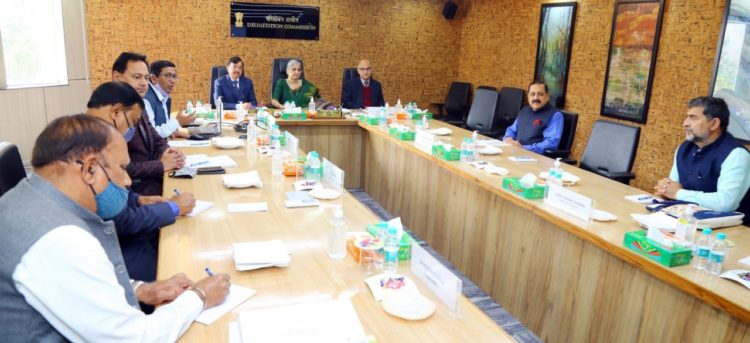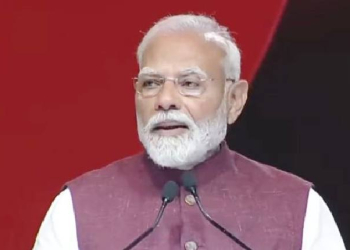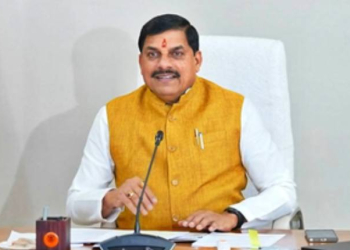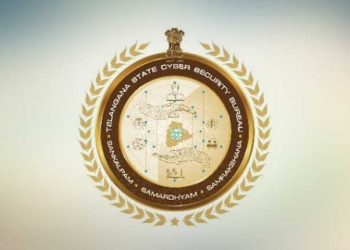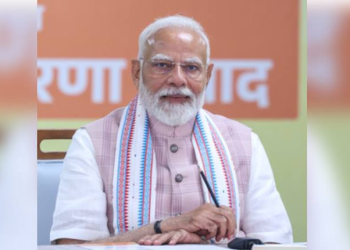Jammu: The Jammu and Kashmir delimitation commission has published its proposals in the gazettes of India and J&K and invited objections and suggestions till March 21.
The commission has announced that it will visit the union territory on March 28 and 29 for public sittings.
The commission has incorporated two detailed dissenting notes signed by three National Conference (NC) Lok Sabha members including Dr Farooq Abdullah, Mohammad Akbar Lone and Hasnain Masoodi.
Five Lok Sabha members from Jammu and Kashmir are associate members of the commission. In addition to three from the NC, the other two are union minister of state in the PMO, Dr Jitendra Singh and Jugal Kishore of the BJP.
In its dissenting note, the NC has challenged the constitution of the commission. The NC’s dissenting note also pertains to the different assembly constituencies proposed by the panel.
The statement by the commission has said that the number of Lok Sabha seats in Jammu and Kashmir will remain five.
Jammu division will have Jammu-Reasi and Udhampur-Doda constituencies while Kashmir division will have Srinagar-Budgam and Baramulla-Kupwara. Anantnag-Poonch seat will be part of both the divisions.
As per the proposals of the panel, J&K will have 90 assembly constituencies out of which seven segments will be reserved for SCs and nine for STs.
“Copies of the Gazette are available for reference with the Chief Electoral Officer, UT of Jammu and Kashmir and the Election officials in all districts of the Union Territory. Objections and suggestions by the people can be given to the Secretary, Delimitation Commission, Ashoka Hotel, 50-B, Niti Marg, Chankyapuri, New Delhi on or before 5 p.m. on March 21,” the statement said.
Suggestions will be considered by the Commission in its public sitting in Jammu and Kashmir on March 28 and 29, the location and timing of which will be notified separately.
Nine seats reserved for STs include Rajouri, Darhal and Thanna Mandi, all in Rajouri district, Surankote and Mendhar in Poonch district and Mahore in Reasi district (Jammu region), Gurez in Bandipora district, Kangan in Ganderbal district and Kokernag in Anantnag district (Kashmir division).
All seven seats reserved for SCs fall in Jammu region including Ramnagar in Udhampur district, Kathua South in Kathua district, Ramgarh in Samba district; , Bishnah, Suchetgarh, Marh and Akhnoor in Jammu district.
With the panel now putting its proposal in public domain, anyone can file the objections which have to be either accepted or rejected by the Commission before submission of final report.
The Commission has its term till May 6 and there is a possibility that it will submit final report within the timeline.
The Panel was set up on May 6, 2020 with one year term which was extended by another year on May 6, 2021. While its term was due to expire on May 6, 2022, it was granted two month extension to complete the task.
The commission is headed by Justice (Retired) Ranjana Prakash Desai and comprises the Chief Election Commissioner (CEC) Sushil Chandra and State Election Commissioner (SEC) K.K. Sharma.
In addition to the proposed 90 assembly seats to which elections will be held, 24 seats will continue to remain vacant as they fall under Pakistan-occupied Jammu Kashmir (PoJK).
While splitting Jammu and Kashmir into two Union Territories through the Reorganization Act, the Union Home Ministry had increased Assembly seats of Jammu and Kashmir by seven taking total seats to 114, 24 of which are reserved for PoJK while election will be held for 90 seats.
Two women MLAs will be nominated to the House, which was the position earlier also.
In the previous Assembly, Kashmir had 46 seats, Jammu 37 and Ladakh four.
Delimitation of the Assembly constituencies was last held in 1994-95 during the President’s Rule when seats of the erstwhile State Assembly were raised from 76 to 87.
After the final report of the delimitation commission, summary revision of the electoral rolls will be followed by elections in J&K.
(IANS)



